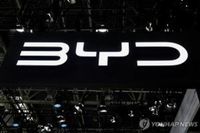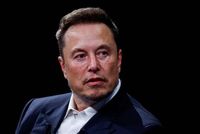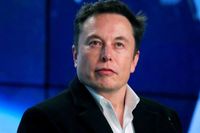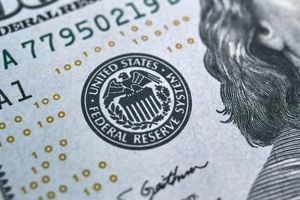On March 19, 2025, tensions in the electric vehicle sector intensified as the gap between Elon Musk's fortunes in Tesla and SpaceX drew sharply closer. Recent figures reveal that Musk, the CEO of both companies, holds approximately 42% of SpaceX while his Tesla shares—amounting to 13%—have decreased significantly in value. Current estimates from Bloomberg indicate that SpaceX's valuation currently stands at $350 billion, leading to a $136 billion worth of Musk's stake when accounting for a typical 5% discount applied to private equity valuations. Meanwhile, the value of his Tesla shares has plummeted to approximately $92.6 billion, leaving a stark $43.4 billion disparity between the two tech giants.
This reality highlights a more significant issue within the electric vehicle industry. Tesla's stock has seen a staggering decline of over 40% since the start of 2025, and a discouraging 50% drop since mid-December. This sharp decline has corresponded with a significant drop in Musk's overall net worth, which has plummeted by $130 billion, or more than 30% this year, allowing Musk’s net worth to settle at a reported $303 billion—the highest globally.
According to Bloomberg, Musk's wealth peaked at over $400 billion last year, following a historical rise after a robust performance in his capital ventures and aggressive investment strategies during Trump's election campaign led to Tesla stocks soaring. However, as concerns about his involvement in politics and their correlation with Tesla's declining sales emerged, investor confidence started waning.
Particularly notable is the impact of competition from rival electric vehicle manufacturer BYD, which has enjoyed a significant upward trajectory in both sales and stock valuation. As of March 20, 2025, BYD's stock price reached an all-time high of 424.0 Hong Kong dollars. In contrast to Tesla, BYD's stock has surged more than 50% this year alone, outperforming Tesla by a considerable margin. Between February and March 2025, BYD's shares rose significantly, spurred by the introduction of advanced technologies, such as their 'God's Eye' autonomous driving system, projected to become essential in their car lineup, as well as a new ultra-fast charging platform.
On March 17, BYD launched a revolutionary electric vehicle platform enabling 400 kilometers of driving after just a 5-minute charge, a significant development in addressing the critical challenges of charging speed and range. This platform utilizes a 1000-volt architecture supporting a maximum charging output of 1000 kW, coupled with plans to establish 4,000 new ultra-fast charging stations. Statements from BYD's founder, Wang Chuanfu, suggest that their technological advancements position them ahead of their competitors, including Tesla and Volkswagen.
While BYD's advancements create a more competitive environment in the electric vehicle space, Tesla's recent challenges are compounded by declining sales figures in key markets, particularly in China, where Tesla reported a 49% drop in deliveries year-over-year in February. Industry analysts attribute some of this downturn to Musk's controversial political activities, which have sparked a backlash among consumers and prompted calls for Tesla boycotts.
Additionally, Wall Street analysts have responded to these shifts, with reports suggesting that Tesla's forecasted stock price targets have been slashed due to these developments. For instance, RBC Capital recently lowered its price target for Tesla’s stock from $440 to $320, stating that expectations surrounding the company's fully autonomous driving software had diminished. Analysts have pointed out that consumer perception of Musk's political engagements seems to be fueling a broader market decline for Tesla and lessened confidence among potential investors.
David Wagner, a portfolio manager at Aptus Capital Advisors, remarked on the intense competition that electric vehicle manufacturers face today, asserting that as competitors like BYD successfully innovate, they quickly erode the market share Tesla once dominated.
Indeed, the latest developments highlight a tumultuous period for Musk in the electric vehicle market, where innovation and consumer sentiment are shifting swiftly. With Tesla's market position and investment strategies being tested like never before, the question remains—can Musk adapt to this evolving landscape? The road ahead for Tesla will undoubtedly necessitate more than just technological prowess; a recalibrated approach aligning with shifting consumer attitudes will be essential.






